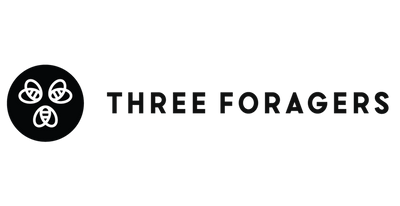

· By Three Foragers
The Myths Surrounding Beekeeping
As beekeepers and honey producers, we hear false, or inaccurate myths about our way of life, time and time again. Many of you know that treating the planet, and its inhabitants well, is our top priority, but many can’t understand how that can be possible as a honey producer. Unfortunately, there are many myths about the beekeeping process so we thought we’d spent some time clearing those up!
Beekeepers chop the wings off of queen honey bees
We can’t categorically say this is a myth but it is far from common practice. In very rare instances, some beekeepers clip the wings of their queen bees to stop her from leaving the hive and having the rest of the hive follow. A queen will only likely want to fly off to find a new home if she believes her hive needs more space. Therefore, the ethical way to prevent this from happening is to make sure a hive always has enough space.
At Three Foragers Bee Co., we will never clip the wings of our bees. In fact, we don’t personally know any beekeepers that do this. Thankfully, it is an extremely rare practice.
Beekeepers steal a hive's honey
Honey bees are amazing creatures, and extremely efficient. So efficient that they create far more honey than they would ever be able to consume on their own. They’re like the very generous aunt who always cooks enough Thanksgiving dinner for 20 people, even if there are only five of you. So, we don’t believe beekeepers are stealing honey, they’re purely making use of the leftovers!
We know that our hives require approximately 60-80 pounds of honey to get them through the winter so we make sure they have that amount, at a minimum. We will only take the excess honey they produce in the summer months.
Honey producers don’t care about the health of their bees
A healthy hive produces a healthy amount of quality honey. For this reasons alone it would be foolish to say that honey producers don’t care about the health of their bees.
Aside from that point, beekeepers become beekeepers as it is their passion. For three generations, our family have loved seeing our hives thrive and we love helping our bees produce a food that people can enjoy. We know how important honey bees are to our ecosystem and that is why the health of our bees is the most important thing of all.
We can live without honey
While this may be true, it has a caveat. Humans can certainly get by without honey but if people were to stop eating honey, beekeepers would lose an important revenue stream and in some cases cause them to go out of business. As a result, there would be less commercial beekeepers and fewer beekeepers means fewer hives.
Beekeepers and honey producers currently play a crucial role in maintaining the health and number of honey bees around the world. If this were to significantly drop, there would be major consequences! Honeybees pollinate many plants as they fly about. If plants weren’t getting pollinated, they wouldn’t survive. Plants that produce berries, fruit and nuts all rely on honey bees. So while you may be able to live without honey, would you live without every food that relies on pollination? You can find out more about this in our blog, Why A Bee-Less World Would Mean More Than Just No Honey.
So, we’re glad we cleared that’s up!
They are some of the biggest myths that float around the internet. An ethical shopper knows that there are “good” and “bad” companies to buy from. Some people chose not to eat chocolate bars with palm oil in, for instance, and some people chose to only eat cage-free eggs. Canada is lucky to have one of the healthiest bee populations in the world and that is thanks to ethical, and sustainable, practices employed by Canadian beekeepers.
